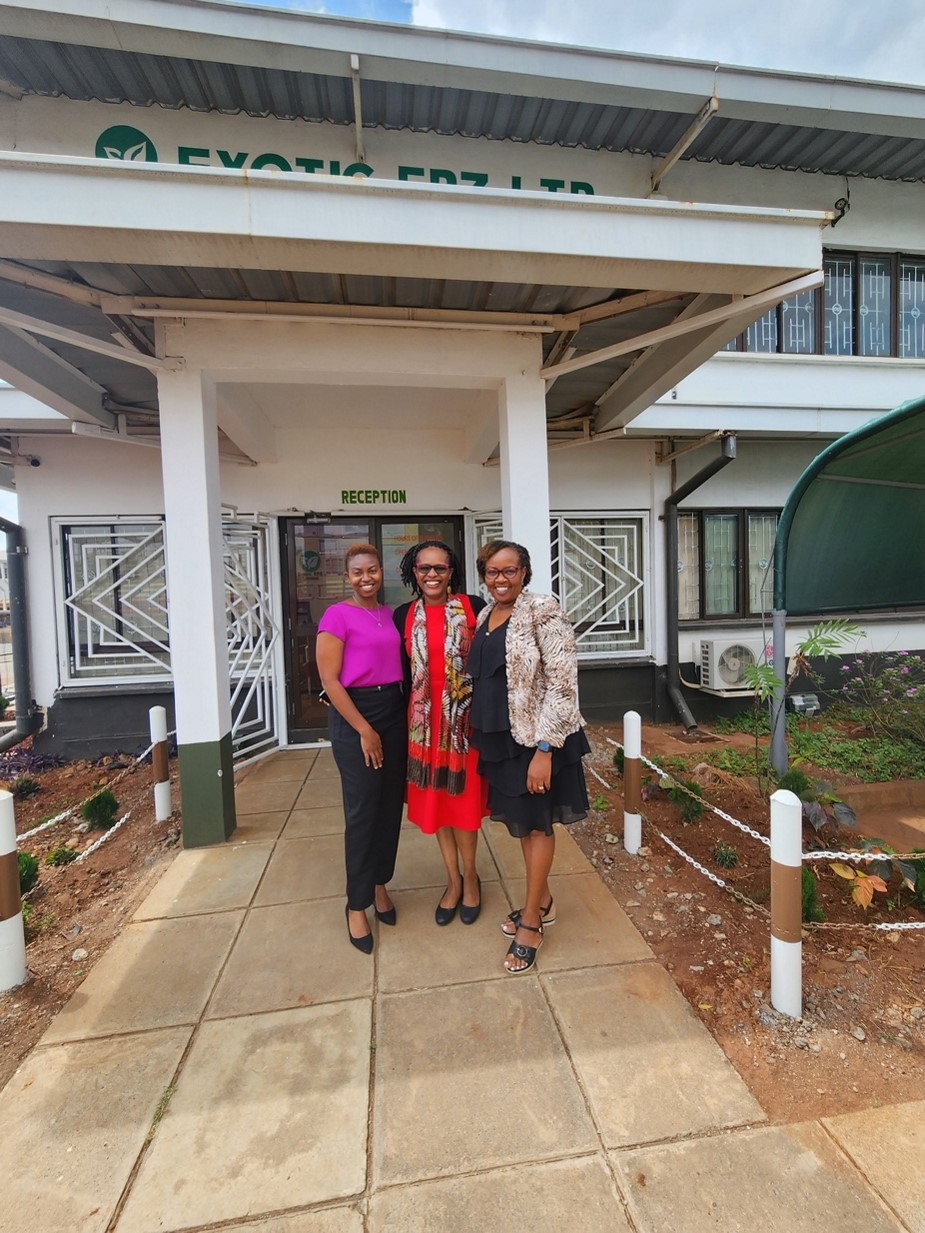Putting women at the heart of a macadamia success story
In 2016 three Kenyan entrepreneurs put their heads together to devise an agribusiness that could both tap into international markets and enhance the lives of smallholder farmers. Their answer was Exotic EPZ, a macadamia nut processor and trader.
From that seed of an idea, planted by Jane Maigua, Loise Maina and Charity Ndegwa, a thriving business has grown since it launched in 2017. Exotic is the only women-owned macadamia nuts exporter in Kenya, processing around 3,000 metric tonnes of macadamias annually and in 2022 paying USD3 million to its farmer suppliers.
What sets the business apart is its focus on enabling farmers, particularly women, to enhance their incomes and develop more resilient livelihoods. That purpose drove the three founders to build their company around the humble macadamia nut. “Our priority was finding a sector with the most potential to support rural women. We assessed the viability of several business ideas and decided to go with macadamia nuts because of the international demand. We could also provide a market to many small holder farmers who grow macadamia nuts back home and add value by processing the nuts locally, because macadamias need to be dried quickly to avoid them spoiling,” explains Jane.
Having previously worked for development and non-government organisations (NGOs) in roles focussing on women’s empowerment, entrepreneurship and employment, the three founders could see there was a desperate need to increase economic opportunity for rural women. Kenya’s position as one of the world’s largest macadamia nut producers marked it out as a sector which could provide a platform to reach a high number of them.
Alongside processing high quality products and expanding its client base, Exotic has stayed true to this core mission says Charity: “We’ve run capacity building projects for all our smallholders from the start, but with a particular focus on women. We train them in effective growing techniques and financial skills, to help them manage their business. We’ve also located hubs in rural areas where they can sell their produce without using middlemen. Without a local hub, women who can’t afford the time to travel will simply sell their produce to the nearest buyer, whatever the price.”
In practice this means smallholders receive between 1.5 and 2 times more for their nuts by partnering with Exotic. The company is also working with a telecoms provider to pay smallholder farmers directly to their phones. Mobile coverage is high in Kenya and handsets can be bought cheaply. If smallholders don’t have a bank account, they can be paid directly into a mobile wallet, which they can use in local stores and to pay school fees. This strengthens their financial independence which many, particularly women, lack.
The USD0.6 million loan provided by the CFC last year is designed to help grow the company’s positive impact. As Charity explains: “The investment will provide us with the working capital we need to source more nuts from more farmers and expand our impact. We want to double our output and increase the number of farmers who supply us to 10,000 over the next three years.” They also have plans to build a new processing factory and to diversify into roasting nuts and producing oils.
Ernesto Daza Lacouture, who works closely with Exotic in his role as CFC Impact Investment Manager, says the business has the perfect combination of viability and impact. “It is breaking new ground in Kenya, not only is it solely women-owned it is creating much-needed opportunity for smallholders, especially hard to reach rural women. As an impact investor our purpose is to support organisations like Exotic that are making a genuine difference on the ground. But that must be based on solid business foundations and sound leadership, which Exotic has both of. There is global demand for high value macadamia products and we think Exotic is in a strong position to take advantage of that.”
Of course, establishing the business in a male dominated sector wasn’t easy. Without collateral at the start Jane, Charity and Loise couldn’t access financing from local banks, while others in the sector told them a women-led business wouldn’t be taken seriously. But through determination and entrepreneurial skill they’ve overcome these barriers to establish a company that is driving positive change.
For other women contemplating following in the steps of Exotic’s owners, Charity has some sound advice based on this experience: “Don’t doubt yourself, you are clever enough and you have the soft skills needed to build important relationships. This is a good time to be looking for impact investors because they’re keen to support women-led businesses. You need to have the business fundamentals in place, but if you do, go for it!”

